Moscow’s backing fuels North Korea’s wartime boom
The ongoing war in Ukraine has strengthened the relationship between Russia and North Korea, resulting in various benefits for North Korea, including economic growth, military advancements, and improved equipment. Japanese academic Atsuhito Isozaki looks at how North Korea is gaining.
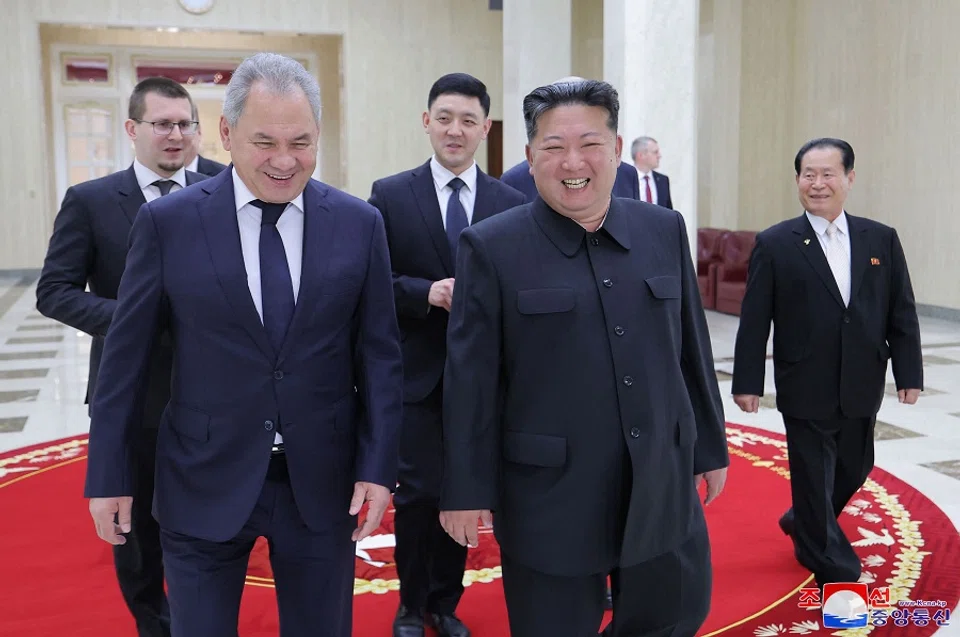
North Korea has finally admitted to deploying troops to the Russia-Ukraine battlefield. Although the US and South Korea had already confirmed this fact last autumn, North Korean media remained silent for six months, keeping it hidden from its own people until now.
It was not until late April this year that North Korea suddenly announced that its military had participated in operations to retake Russia’s western Kursk region. The announcement claimed this was a military action based on the automatic intervention clause in Article 4 of the Comprehensive Strategic Partnership Treaty signed by North Korean leader Kim Jong Un and Russian President Vladimir Putin last year. The statement also clearly expressed North Korea’s intention to continue providing military support and sending troops to assist Russia in the future.
As North Korea cautiously reopens its borders to tourism post-pandemic, it seems to be prioritising the domestic propaganda value of its alliance with Russia, even at the cost of some operational secrecy regarding troop movements. This suggests a shift in regime priorities towards securing domestic public support, potentially outweighing the previous emphasis on absolute information control.
Growing cooperation between Russia and North Korea
Russia and North Korea have been rapidly strengthening ties across multiple sectors. The most symbolic sign of this is the frequent exchange of high-level officials. In March this year, Sergei Shoigu, former Russian defence minister and current secretary of the security council, visited North Korea and held talks with Kim Jong Un. This visit came just six months after his previous trip to Pyongyang.
If it happens, it will mark three consecutive years of summit meetings, in stark contrast to the six-year interruption in summit diplomacy between China and North Korea.
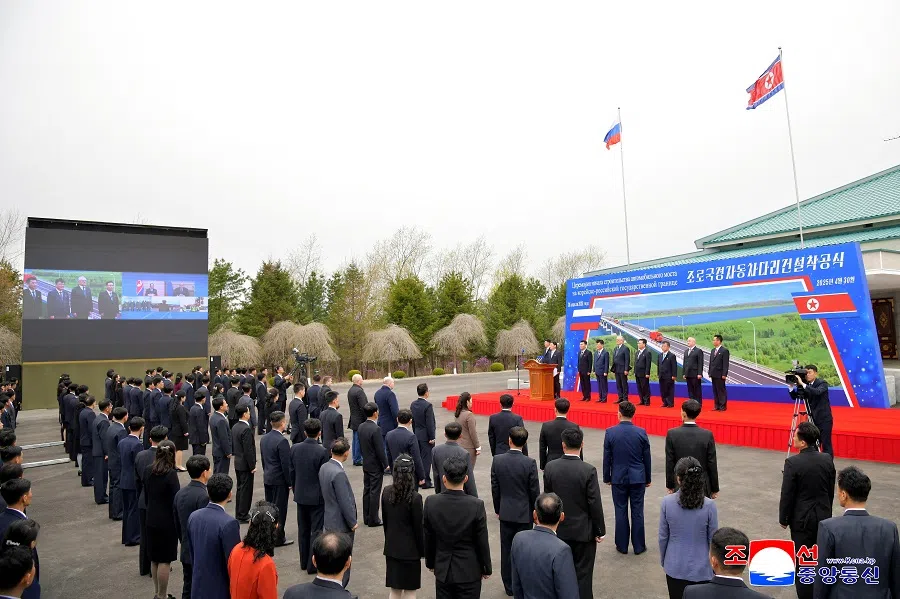
A summit between Russia and North Korea is also expected to take place later this year. If it happens, it will mark three consecutive years of summit meetings, in stark contrast to the six-year interruption in summit diplomacy between China and North Korea.
At the end of April, a groundbreaking ceremony was also held for the construction of a highway connecting the Russian and North Korean borders. While the China-North Korea border stretches 1,400 kilometres, the Russia-North Korea border is only 17 kilometres long along the lower Tumen River.
Until now, North Korea’s trade has been almost exclusively limited to China, but that situation may be changing. While Russia-North Korea trade cannot replace China-North Korea trade, there is a clear policy direction toward strengthening economic cooperation between Russia and North Korea.
Influx of foreign currency from Russia
However, it is not easy to grasp the actual scale of this bilateral trade. Much of the foreign currency and goods flowing into North Korea — as compensation for supplying weapons and troops — may not be reflected in published trade statistics.
North Korea is currently booming due to an unprecedented wartime demand.
North Korea is currently booming due to an unprecedented wartime demand. In Pyongyang, high-rise apartment buildings are being completed one after another. Housing construction was a highlight project proposed at the 8th Congress of the Workers’ Party of Korea in January 2021, and recent developments suggest that progress has been swift. This year marks not only the final year of the current Five-Year Plan but also the 80th anniversary of the founding of the Party in October, prompting an urgency to deliver tangible results.
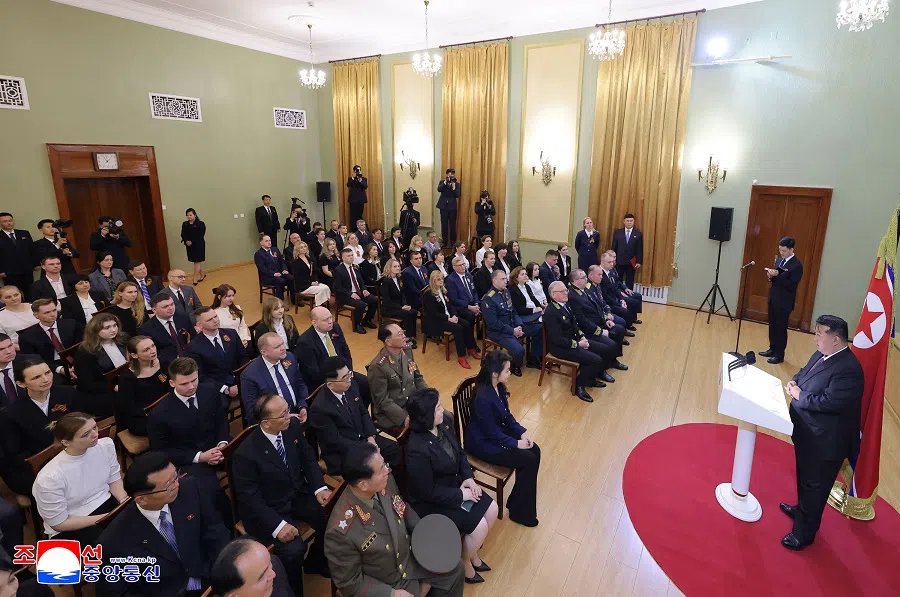
The Pyongyang General Hospital is nearing the start of operations, and the large seaside resort in Wonsan, located on the Sea of Japan coast, is also set to open soon. These two projects were personally commissioned by Kim Jong Un five and seven years ago, respectively, but both faced serious funding difficulties and experienced repeated construction delays. It now seems undeniable that the influx of foreign currency from Russia is playing a key role in pushing these developments forward.
None of these public announcements in North Korea mention any benefits received through military cooperation with Russia — everything is presented as Kim’s “accomplishments”.
Kim Jong Un has also made a series of inspection visits to showcase economic achievements under his leadership, including the largest greenhouse farm in the country’s history, a shallow-sea aquaculture facility, and a computer gaming centre in a newly developed residential district in Pyongyang. Naturally, none of these public announcements in North Korea mention any benefits received through military cooperation with Russia — everything is presented as Kim’s “accomplishments”.
Wartime demand bolsters North Korea’s military
The wartime demand has also contributed to strengthening North Korea’s military. In March this year, the country unveiled a new type of drone. In April, it held a grand launching ceremony for a new destroyer. This was followed by a series of weapons tests, including launches of hypersonic cruise missiles, strategic cruise missiles, and surface-to-air missiles from the destroyer. While it is unlikely that Russia would part with its most advanced military technologies, some analysts believe that certain military technologies may indeed have been transferred to North Korea.
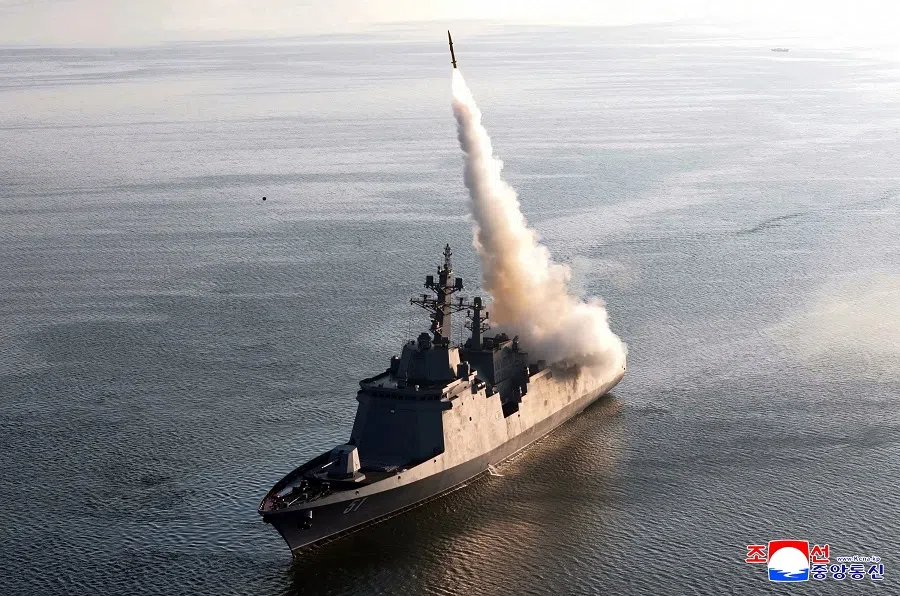
Kim Jong Un places particular emphasis on strengthening North Korea’s naval power, including pushing for the construction of nuclear submarines. He once declared: “It is important to establish a proactive and offensive defensive system on the premise of powerful attack capability.” While North Korea’s military strategy still prioritises deterrence against the US, it is worth noting that there is now a greater emphasis on “offence” than in the past.
Russia, a permanent member of the UN Security Council with veto power, shields its ally, North Korea, from tougher economic sanctions. In fact, the UN panel of experts tasked with monitoring the enforcement of sanctions was forced to disband after Russia exercised its veto. Although China is also a permanent Security Council member, it has not shown the same level of overt support for North Korea as Russia currently does.
Japan, the US and South Korea have yet to find an effective way to respond to North Korea’s growing confidence in its expanding military power.
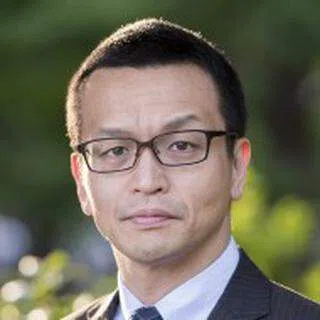




![[Big read] When the Arctic opens, what happens to Singapore?](https://cassette.sphdigital.com.sg/image/thinkchina/da65edebca34645c711c55e83e9877109b3c53847ebb1305573974651df1d13a)